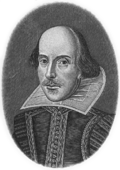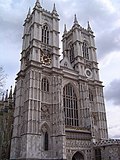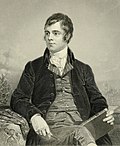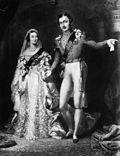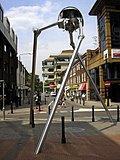Portal:United Kingdom
The United Kingdom Portal
 |
 |
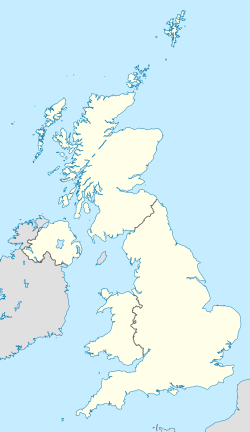
| |
The United Kingdom of Great Britain and Northern Ireland, commonly known as the United Kingdom (UK) or Britain, is a country in north-western Europe, off the coast of the continental mainland. It comprises England, Scotland, Wales and Northern Ireland. The UK includes the island of Great Britain, the north-eastern part of the island of Ireland, and most of the smaller islands within the British Isles, covering 94,354 square miles (244,376 km2). Northern Ireland shares a land border with the Republic of Ireland; otherwise, the UK is surrounded by the Atlantic Ocean, the North Sea, the English Channel, the Celtic Sea and the Irish Sea. It maintains sovereignty over the British Overseas Territories, which are located across various oceans and seas globally. The UK had an estimated population of over 68.2 million people in 2023. The capital and largest city of both England and the UK is London. The cities of Edinburgh, Cardiff and Belfast are the national capitals of Scotland, Wales and Northern Ireland, respectively.
The UK has been inhabited continuously since the Neolithic. In AD 43 the Roman conquest of Britain began; the Roman departure was followed by Anglo-Saxon settlement. In 1066 the Normans conquered England. With the end of the Wars of the Roses the Kingdom of England stabilised and began to grow in power, resulting by the 16th century in the annexation of Wales and the establishment of the British Empire. Over the course of the 17th century the role of the British monarchy was reduced, particularly as a result of the English Civil War. In 1707 the Kingdom of England and the Kingdom of Scotland united under the Treaty of Union to create the Kingdom of Great Britain. In the Georgian era the office of prime minister became established. The Acts of Union 1800 incorporated the Kingdom of Ireland to create the United Kingdom of Great Britain and Ireland in 1801. Most of Ireland seceded from the UK in 1922 as the Irish Free State, and the Royal and Parliamentary Titles Act 1927 created the present United Kingdom.
The UK became the first industrialised country and was the world's foremost power for the majority of the 19th and early 20th centuries, particularly during the Pax Britannica between 1815 and 1914. The British Empire was the leading economic power for most of the 19th century, a position supported by its agricultural prosperity, its role as a dominant trading nation, a massive industrial capacity, significant technological achievements, and the rise of 19th-century London as the world's principal financial centre. At its height in the 1920s the empire encompassed almost a quarter of the world's landmass and population, and was the largest empire in history. However, its involvement in the First World War and the Second World War damaged Britain's economic power, and a global wave of decolonisation led to the independence of most British colonies. (Full article...)
Featured article
The Hoxne Hoard is the largest hoard of late Roman silver and gold discovered in Britain. Found by a metal detectorist in the village of Hoxne in Suffolk, England, on 16 November 1992, the hoard consists of 14,865 Roman gold, silver and bronze coins from the late fourth and early fifth centuries, and approximately 200 silver tableware and gold jewellery items. The hoard is now on permanent display in the British Museum and is valued at £4.5 million. The coins of the hoard date it after 407 AD, which coincides with the end of Britain as a Roman province. The Hoxne Hoard contains several rare and important objects, including a gold body-chain and silver-gilt pepper-pots. The Hoxne Hoard is also of particular archaeological significance because it was excavated by professional archaeologists with the items largely undisturbed and intact. The find has helped to improve the relationship between metal detectorists and archaeologists, and influenced a change in English law regarding finds of treasure. (Full article...)
Featured biography
Jocelin was a 12th century Cistercian monk and cleric, who became the fourth Abbot of Melrose before becoming Bishop of Glasgow. He was probably born in the 1130s, and in his teenage years became a monk of Melrose Abbey. He rose in the service of Abbot Waltheof, and, by the time of the short abbacy of Waltheof's successor Abbot William, Jocelin had become prior. Then in 1170 Jocelin himself became abbot, a position he held for four years. Jocelin was responsible for promoting the cult of the emerging Saint Waltheof, and in this had the support of Enguerrand, Bishop of Glasgow. As Bishop of Glasgow, he was a royal official. In this capacity he traveled abroad on several occasions, and performed the marriage ceremony between King William the Lion and Ermengarde de Beaumont, later baptizing their son, the future King Alexander II. Among other things, he has been credited by modern historians as "the founder of the burgh of Glasgow and initiator of the Glasgow fair", as well as being one of the greatest literary patrons in medieval Scotland, commissioning the Life of St Waltheof and the Life of St Kentigen and the Chronicle of Melrose. (Full article...)
General images -
Subportals
WikiProjects
Things you can do
- Visit the British Wikipedians' notice board.
- The noticeboard is the central forum for information and discussion on editing related to the United Kingdom.
- Comment at the British deletion sorting page.
- This page lists deletion discussions on topics relating to the United Kingdom.
Featured pictures
Did you know -

- ... that Graham Fraser pioneered cochlear implantation in the United Kingdom?
- ... that booing heard after the United Kingdom's entry at the Eurovision Song Contest 1984 was reportedly either a response to past football hooliganism, claims of lip syncing, or alleged plagiarism of the Supremes?
- ... that Youlgreave in Derbyshire is one of only a few villages in the United Kingdom to be supplied by its own private waterworks?
- ... that Ed Miliband retweeted "Chaos with Ed Miliband" with a clown emoji during the October 2022 United Kingdom government crisis?
- ... that Change UK had eleven elected members of Parliament despite never actually winning an election?
- ... that the 2023 United Kingdom student protests were organised on TikTok and Snapchat?
In the news
- 28 June 2025 –
- The United Kingdom Border Force seizes 2.4 metric tons of cocaine worth £96 million (US$132 million) from a ship from Panama, reportedly one of the country's largest drug busts. (AP)
- 23 June 2025 – Gaza war protests
- The United Kingdom announces it will ban the direct action protest network Palestine Action on anti-terrorism grounds after the group broke into the RAF Brize Norton base and vandalized two planes. (AP)
- 20 June 2025 – Middle Eastern crisis
- Iranian foreign minister Abbas Araghchi meets with the foreign ministers of the United Kingdom, Germany, France and European Union in Geneva for talks about its nuclear program. (AP)
- 20 June 2025 –
- The United Kingdom parliament votes to approve a bill allowing terminally ill adults to voluntarily end their lives, moving towards legalizing assisted suicide in England and Wales. (DW) (BBC News)
- 10 June 2025 – Fossil fuel phase-out
- The British government announces it will invest £14.2 billion (US$19 billion) to construct the new Sizewell C nuclear power station in Suffolk, England, to reduce the country's reliance on fossil fuels. (AP) (Reuters)
- 10 June 2025 – War crimes in the Gaza war, Gaza humanitarian crisis
- The United Kingdom, Canada, Australia, New Zealand, and Norway impose sanctions on Israeli far-right ministers Bezalel Smotrich and Itamar Ben-Gvir, including asset freezes and travel bans, due to their conduct during the Gaza war. (Reuters)
Categories
Other UK-connected Wikipedias
Wikimedia
The following Wikimedia Foundation sister projects provide more on this subject:
-
Commons
Free media repository -
Wikibooks
Free textbooks and manuals -
Wikidata
Free knowledge base -
Wikinews
Free-content news -
Wikiquote
Collection of quotations -
Wikisource
Free-content library -
Wikiversity
Free learning tools -
Wikivoyage
Free travel guide -
Wiktionary
Dictionary and thesaurus






















